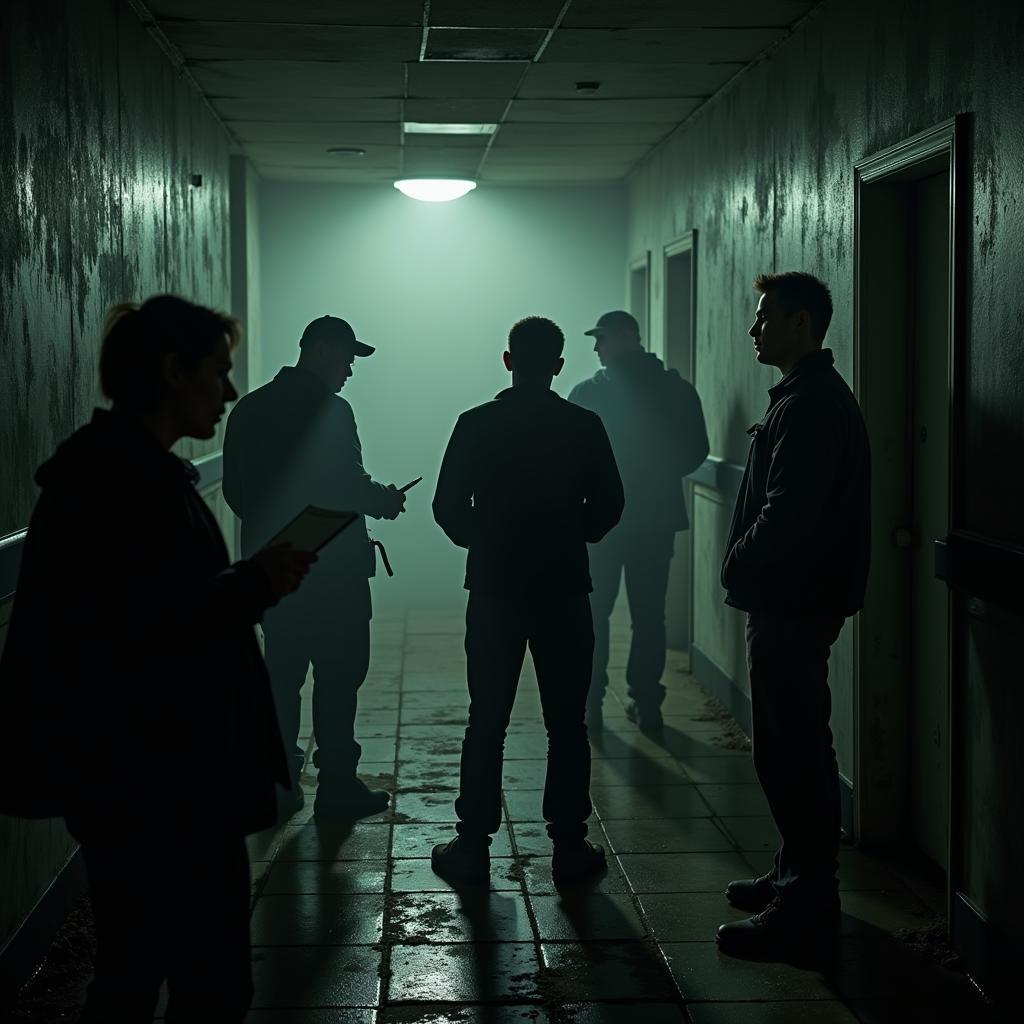Qualitative research delves into the complexities of human experience, and Research Theories In Qualitative Research provide the frameworks for understanding these intricate narratives. basics of qualitative research are essential for paranormal investigators. These theories guide researchers in exploring phenomena like ghostly apparitions, psychic abilities, and unexplained events. By applying these frameworks, researchers can analyze interviews, observations, and textual data to uncover patterns and meanings within the seemingly chaotic realm of the paranormal.
Grounded Theory: Building from the Ground Up
Grounded theory emphasizes developing theories directly from the data collected. Imagine investigating a haunted house. Instead of starting with preconceived notions, a grounded theorist would collect data through interviews with witnesses, observations of the environment, and historical research. From this data, patterns and themes would emerge, eventually forming a theory about the haunting. This inductive approach allows for fresh perspectives and unexpected insights.
How Grounded Theory Illuminates Paranormal Phenomena
Grounded theory is particularly useful in paranormal research where existing explanations may be inadequate or nonexistent. By focusing on the data itself, researchers can build theories that are grounded in the experiences of those who have encountered the paranormal. This approach can lead to new understandings of phenomena like poltergeist activity or electronic voice phenomena (EVPs).
 Grounded Theory in Paranormal Research
Grounded Theory in Paranormal Research
Ethnography: Immersing in the Paranormal World
Ethnography involves immersing oneself in a particular culture or group to understand their beliefs and practices. In paranormal research, ethnography can involve spending time with ghost hunting groups, psychic mediums, or communities that believe in specific paranormal phenomena. By participating in their activities and observing their interactions, researchers can gain a deeper understanding of their perspectives and experiences.
What is a research framework for ethnography? A robust framework would involve documenting observations, conducting interviews, and analyzing artifacts related to the paranormal beliefs and practices of the group being studied. This immersive approach offers valuable insights into the social and cultural context of paranormal beliefs.
Ethnographic Insights into Paranormal Beliefs
Ethnographic studies can shed light on how paranormal beliefs are formed, transmitted, and maintained within specific groups. For instance, an ethnographic study of a ghost hunting group could reveal how their shared experiences and interpretations shape their understanding of haunted locations. qualitative research theories play a crucial role in ethnographic studies of paranormal communities.
 Ethnographic Study of a Paranormal Investigation
Ethnographic Study of a Paranormal Investigation
Narrative Inquiry: Exploring Personal Paranormal Experiences
Narrative inquiry focuses on the stories people tell about their lives and experiences. In paranormal research, this involves collecting and analyzing personal accounts of encounters with the supernatural. These narratives can provide valuable insights into the emotional, psychological, and spiritual impact of paranormal experiences. what is inductive research and how does it relate to narrative inquiry? Both rely on gathering data to form theories, a common approach in qualitative research.
The Power of Paranormal Narratives
Narrative inquiry can reveal the diverse ways in which individuals interpret and make sense of their paranormal experiences. Some may view these experiences as terrifying and disruptive, while others may find them comforting or transformative. Analyzing these narratives can help researchers understand the complex relationship between belief, experience, and meaning-making in the context of the paranormal. An essential part of doing research is an essential part of doing research is understanding the impact of individual experiences.
Conclusion: Utilizing Qualitative Research Theories for Paranormal Understanding
Research theories in qualitative research provide invaluable tools for exploring the enigmatic world of the paranormal. By applying grounded theory, ethnography, and narrative inquiry, researchers can move beyond simple documentation of unexplained events and delve into the deeper meanings and interpretations that individuals ascribe to these experiences. what is a research framework is a crucial question to consider when planning a qualitative research project in the paranormal field. These theories offer a structured approach to investigating the complex tapestry of human experience in the face of the unknown.
FAQ
- What are the most common qualitative research theories used in paranormal investigations?
- How can grounded theory help us understand unexplained phenomena?
- What are the ethical considerations when conducting ethnographic research within paranormal communities?
- How can narrative inquiry illuminate the impact of paranormal experiences on individuals?
- What are some limitations of using qualitative research methods in the study of the paranormal?
- What other research methods can complement qualitative research in paranormal investigations?
- Where can I find more resources on qualitative research in the paranormal field?
Need help with your Paranormal Research? Contact us 24/7: Phone: 0904826292, Email: research@gmail.com or visit us at No. 31, Alley 142/7, P. Phú Viên, Bồ Đề, Long Biên, Hà Nội, Việt Nam.